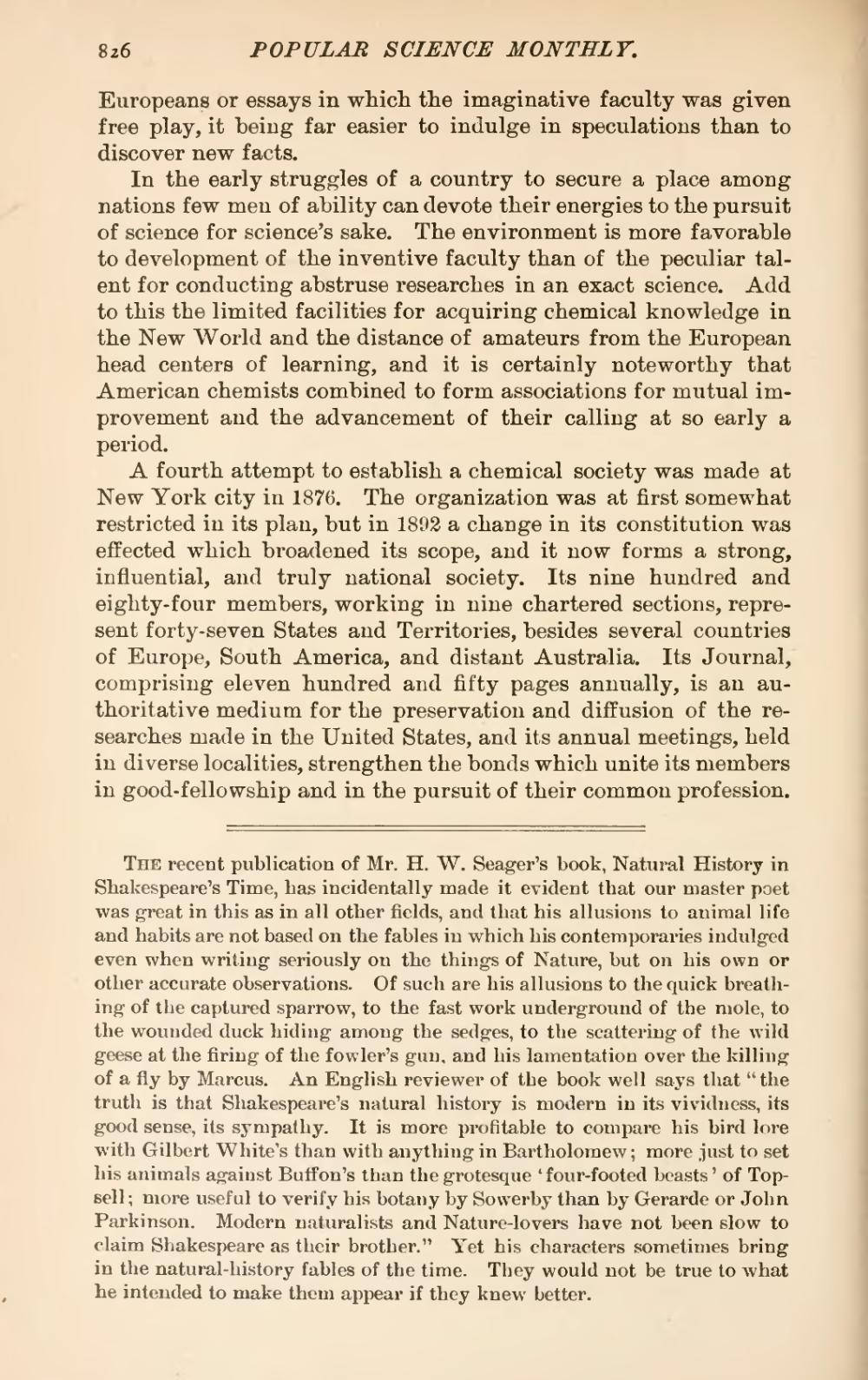Europeans or essays in which the imaginative faculty was given free play, it being far easier to indulge in speculations than to discover new facts.
In the early struggles of a country to secure a place among nations few men of ability can devote their energies to the pursuit of science for science's sake. The environment is more favorable to development of the inventive faculty than of the peculiar talent for conducting abstruse researches in an exact science. Add to this the limited facilities for acquiring chemical knowledge in the New World and the distance of amateurs from the European head centers of learning, and it is certainly noteworthy that American chemists combined to form associations for mutual improvement and the advancement of their calling at so early a period.
A fourth attempt to establish a chemical society was made at New York city in 1876. The organization was at first somewhat restricted in its plan, but in 1892 a change in its constitution was effected which broadened its scope, and it now forms a strong, influential, and truly national society. Its nine hundred and eighty-four members, working in nine chartered sections, represent forty-seven States and Territories, besides several countries of Europe, South America, and distant Australia. Its Journal, comprising eleven hundred and fifty pages annually, is an authoritative medium for the preservation and diffusion of the researches made in the United States, and its annual meetings, held in diverse localities, strengthen the bonds which unite its members in good-fellowship and in the pursuit of their common profession.

